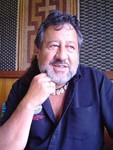South Auckland communities vibrant and close-knit Maori Party
Maori Party MP for Tamaki Makaurau, Dr Pita Sharples, today vigorously defended South Auckland against negative stereotypes used by outsiders.
“The Police Association has a vested interest in describing our communities as lawless. Obviously they are lobbying for more police to boost the strength of their union, so they highlight every incident that involves the police,” said Dr Sharples.
“I also saw a throwaway comment about us from the designer of a stab-proof vest, which just goes to show how negative attitudes get entrenched in the minds of people who have probably never visited our communities,” he added.
“The reality is, our communities are tremendously diverse, with vibrant cultures mingling in a lively, creative environment.
“In our malls, people talk with each other, make music, they dance. The buzz in our markets has to be seen to be believed. We have huge church congregations of all denominations. Our schools are literally bursting with youth and life.
“It can be quite in-your-face at times, and maybe outsiders who are not used to it might find that a bit intimidating – but we love it,” said Dr Sharples.
“Like all huge urban areas, we have our problems, but our lives do not centre on the police and crime and violence. Like everyone else, we are busy with whanau gatherings, community festivals, school events, speech and sports competitions and cultural events.
“Where our people have identified problems, they have also sought solutions. After some violent incidents recently, Asian and other communities got together formally on the marae, for example, which has been just a great experience for everyone. There are neighbourhood support initiatives in Manurewa and other places, where people have made a commitment to get to know the people in their street, and to look out for each other,” he said.
“However, ‘P’ is a terrible scourge in our communities, as it is everywhere. ‘P’ respects no-one. Community-based campaigns against ‘P’ have raised thousands of dollars, have toured the country, trained police and social workers to recognise the signs and dangers.
“Our communities are starting to realise the danger of ‘P’, and are working on ways to counter it,” said Dr Sharples. “We are working with the police, community groups, and specialist agencies to get on top of it – because we want to protect our beautiful way of life, for our children and grandchildren.”
